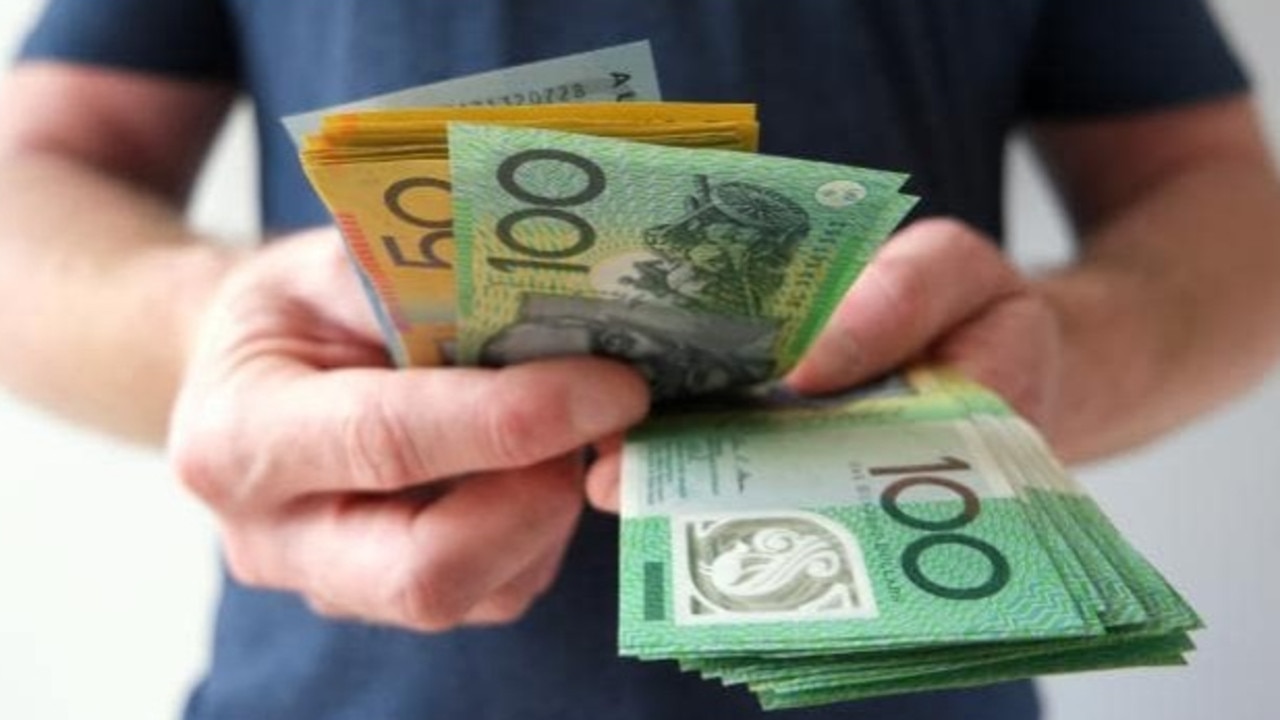Coronavirus stimulus package: When will you get your $750?
Millions of Aussies will soon score a handy cash injection from the government. Here’s how to make sure that free money hits your account.
A massive 6.5 million of us will get a cash handout within days as the federal government desperately tries to stave off a recession in the wake of the coronavirus outbreak.
Last week, the government announced a $17.6 billion coronavirus stimulus package designed to combat the economic impacts of the deadly outbreak.
RELATED: $2 food panic buyers don’t want to buy
RELATED: Death toll rises to five as COVID-19 cases surge
A staggering $4.8 billion of that will come in the form of $750 payments going directly to Australians on government benefits such as the Newstart and Carer’s allowance and Family Tax Benefits.
WHEN WILL I GET MY MONEY?
The good news is that if you’re eligible for the cash, you won’t have long to wait.
The one-off payments will be paid out from March 31.
A total of 3.6 million pensioners will receive the payment, as well as 1.1 million on Youth Allowance and Newstart and 1.5 million other Australians including veterans and those on payments such as the Farm Household Allowance and Family Tax Benefit.
HOW DO I GET IT?
The other piece of good news is that you won’t have to lift a finger to claim it.
Government Services Minister Stuart Robert said yesterday in a statement it will be an automatic process.
“I want to remind everyone who may be eligible for the one-off payment and have existing bank account details with Services Australia that they do not have to do anything – Services Australia will process the payment after 31 March,” he confirmed.

WHY ARE WE GETTING FREE MONEY?
As the fallout from the coronavirus pandemic continues, it seems increasingly likely Australia is headed for a recession – and the stimulus package is an attempt by the government to avoid that or at least soften the blow.
A recession is defined as two consecutive quarters of negative growth, and as the current quarter is already assumed to be negative, the payments have been scheduled to hit people’s accounts in time to potentially salvage the following quarter.
But according to leading independent economist Saul Eslake, it might not be enough to spare us.
“When the government put the package together just over a week ago, one of the objectives was to minimise the risk that economic growth in the June quarter would be negative, given it is likely to have been negative in the current quarter, and thus preclude Australia from satisfying the technical definition of a recession, which is two consecutive quarters of negative growth,” Mr Eslake explained.
“I don’t think much of that as a definition even though it is widely used, but I can understand why the government was trying to prevent people from using the ‘R’ word.
“One of the ways in which it was seeking to do that was by giving more than $4.5 billion to low income households in Australia who they could be reasonably confident, based on the experience of the Rudd government’s cash handouts during the financial crisis, would spend it.”
Mr Eslake said if the government had put the same amount of money into tax cuts instead of cash handouts, most would go to middle and upper income earners who might save it or use it to pay down debt instead of circulating the money through the economy.
“But most people on pensions or social security don’t have mortgages – pensioners might own their own home, but are likely to have paid it off, so the theory was they would spend it, and that’s one of the measures the government hoped would help to avoid a recession,” he said.
“I suspect that’s no longer likely – they will still be hoping people will spend it, but now it might not be enough to prevent Australia from experiencing a recession and it looks as though the government is now shifting away from that as an objective and are accepting that there’s not much they can do to prevent it if it’s going to happen.”
WHEN WILL WE KNOW IF IT HAS WORKED?
Mr Eslake said while the payments had not started to arrive yet, we would probably have to wait until the retail sales figures for April were released in late May or early June to see whether the package was making any difference.
He said other unofficial data such as the banks’ credit card spending information and supermarket profits could also indicate what effect, if any, the payments were having.
“It wouldn't be a surprise if supermarkets did well from all the panic buying but it could be affected by whether the things people want to buy are available and whether people are able to go to stores, and if they can’t go, whether there’s a capacity to have home deliveries – and so much is uncertain,” he said.

“The payments are one of a number of measures, but most of the other measures are designed to help smaller businesses keep staff on, even if revenue is down, and boosting spending in that sense could help businesses survive and keep people in work, which mostly echoes what the Rudd government did.”
Mr Eslake said he believes the government’s top priority was now protecting people’s health as much as possible and on “flattening the curve” to prevent the Australian health system from being overwhelmed by a rapid increase in the number of cases.
“In effect they’re hoping to drag the spread of the virus out for a longer period of time to prevent a peak from overwhelming the capacity to deal with it – and it has economic consequences which now seem almost unavoidable,” Mr Eslake said.




